The Battle of Algiers (Italian: La battaglia di Algeri; Arabic: ????? ????????) is a 1966 Italian-Algerian historical war film co-written and directed by Gillo Pontecorvo and starring Jean Martin and Saadi Yacef. It is based on events by rebels during the Algerian War (1954–62) against the French government in North Africa; the most prominent being the titular Battle of Algiers, the capital of Algeria. It was shot on location and the film's score was composed by Ennio Morricone. The film was shot in a Roberto Rossellini-inspired newsreel style: in black and white with documentary-type editing to add to its sense of historical authenticity. It is often associated with Italian neorealism cinema.
| The Battle of Algiers | |
|---|---|
Theatrical release poster | |
| Directed by | Gillo Pontecorvo |
| Produced by | Antonio Musu Saadi Yacef |
| Written by | Gillo Pontecorvo Franco Solinas |
| Starring | Jean Martin Saadi Yacef Brahim Haggiag Tommaso Neri |
| Music by | Ennio Morricone Gillo Pontecorvo |
| Cinematography | Marcello Gatti |
| Edited by | Mario Morra Mario Serandrei |
| Distributed by | Rizzoli, Rialto Pictures |
Release date |
|
Running time | 120 minutes |
| Country | Italy Algeria |
| Language | Arabic French |
| Budget | $800,000 |
| Box office | $879,794 (domestic) |
The film has been critically celebrated. Both insurgent groups and state authorities have considered it to be an important commentary on urban guerrilla warfare. It occupies the 48th place on the Critics' Top 250 Films of the 2012 Sight & Sound poll, as well as 120th place on Empire magazine's list of the '500 greatest movies of all time'. It was selected to enter the list of the "100 Italian films to be saved".
The film concentrates on the years between 1954 and 1957 when guerrilla fighters regrouped and expanded into the Casbah, the citadel of Algiers. Their actions were met by French paratroopers attempting to regain territory. The highly dramatic film is about the organization of a guerrilla movement and the illegal methods, such as torture, used by the colonial power to contain it. Algeria succeeded in gaining independence from the French, which Pontecorvo addresses in the film's epilogue.
A subject of socio-political controversy, the film was not screened for five years in France; it was released in 1971.
Screenplay
The Battle of Algiers reconstructs the events that occurred in the capital city of French Algeria between November 1954 and December 1957, during the Algerian War of Independence. The narrative begins with the organization of revolutionary cells in the Casbah. Because of partisan warfare between Muslims and Pied-Noir, in which both sides commit acts of increasing violence, France sends French Army paratroopers to the city to fight against and capture members of the National Liberation Front (FLN). The paratroopers are depicted as neutralizing the whole of the FLN leadership through either assassination or capture. The film ends with a coda depicting nationalist demonstrations and riots, suggesting that although France won the Battle of Algiers, it lost the Algerian War.
The tactics of the FLN guerrilla insurgency and the French counter insurgency, and the uglier incidents of the war are depicted. Both colonizer and colonized commit atrocities against civilians. The FLN commandeer the Casbah via summary execution of Algerian criminals and suspected French collaborators; they commit terrorism, including bombings, to harass Europeans. The security forces resort to killings and indiscriminate violence against the opposition. French paratroops are depicted as routinely using torture, intimidation, and murder.
Pontecorvo and Solinas created several protagonists in their screenplay, who are based on historical war figures. The story begins and ends from the perspective of Ali la Pointe (Brahim Haggiag), a petty criminal who is politically radicalized while in prison. He is recruited by FLN commander El-hadi Jafar. This character is played by Saadi Yacef, who was a veteran FLN commander.).
Lieutenant-Colonel Mathieu, the paratroop commander, is the principal French character. Other characters are the boy Petit Omar, a street urchin who is an FLN messenger; Larbi Ben M'hidi, a top FLN leader who provides the political rationale for the insurgency; and Djamila, Zohra, and Hassiba, three FLN women urban guerrillas who carry out a terrorist attack. The Battle of Algiers also features thousands of Algerian extras. Pontecorvo intended to have them portray the "Casbah-as-chorus", communicating with chanting, wailing, and physical effect.
Screenplay
The Battle of Algiers was inspired by the book Souvenirs de la Bataille d'Alger, by Saadi Yacef, an FLN military commander's account of the campaign. Yacef wrote the book while he was held as a prisoner of the French, and it served to boost morale for the FLN and other militants. After independence, the French released Yacef, who became a leader in the new government. The Algerian government backed adapting Yacef's memoir as a film. Salash Baazi, an FLN leader who had been exiled by the French, approached Italian director Gillo Pontecorvo and screenwriter Franco Solinas with the project.
Yacef wrote his own screenplay, which does not have any conversations or plot. The Italian producers rejected it as too biased towards the Algerians. Although sympathetic to Algerian nationalism, the producers wanted to film to deal with events from a more neutral perspective. The final screenplay of The Battle of Algiers has an Algerian protagonist and depicts the cruelty and suffering of both Algerians and the French, pieds-noir and military forces.
To meet the demands of film, The Battle of Algiers uses composite characters and changes the names of certain persons. For example, Colonel Mathieu is a composite of several French counterinsurgency officers, especially Jacques Massu. Saadi Yacef has said that Mathieu was based more on Marcel Bigeard, although the character is also reminiscent of Roger Trinquier. Accused of portraying Mathieu as too elegant and noble, screenwriter Solinas denied that this was his intention. He said in an interview that the Colonel is "elegant and cultured, because Western civilization is neither inelegant nor uncultured".There are very important parallels drawn between the leader of the FLN in the film Ben H’midi and colonel Mathieu which adds to pontecorvo’s show the equal atrocities of both sides.
Visual style
For The Battle of Algiers, Pontecorvo and cinematographer Marcello Gatti filmed in black and white and experimented with various techniques to give the film the look of newsreel and documentary film. The effect was so convincing that American releases carried a notice that "not one foot" of newsreel was used.
Pontecorvo's use of fictional realism enables the movie "to operate along a double-bind as it consciously addresses different audiences." The film makes special use of television in order to link western audiences with images they are constantly faced with that are asserted to express the "truth". The film seems to be filmed through the point of view of a western reporter, as telephoto lenses and hand-held cameras are used, whilst "depicting the struggle from a 'safe' distance with French soldiers placed between the crowds and camera."
Cast
Pontecorvo chose to cast non-professional Algerians. He chose people whom he met, picking them mainly on appearance and emotional affect (as a result, many of their lines were dubbed). The sole professional actor of the movie was Jean Martin, who played Colonel Mathieu; Martin was a French actor who had worked primarily in theatre. Pontecorvo wanted a professional actor, but one who would not be familiar to most audiences, as this could have interfered with the movie's intended realism.
Martin had been dismissed several years earlier from the Théâtre National Populaire for signing the manifesto of the 121 against the Algerian War. Martin was a veteran; he had served in a paratroop regiment during the Indochina War and he had taken part in the French Resistance. His portrayal had autobiographical depth. According to an interview with screenwriter Franco Solinas, the working relationship between Martin and Pontecorvo was not always easy. Unsure whether Martin's professional acting style would contrast too much with the non-professionals, Pontecorvo argued about Martin's acting choices.
Saadi Yacef who plays El-Hadi Jaffar and Samia Kerbash who plays Fatiha are both said to have been members of the FLN and pontecorvo is said to have been greatly inspired by their accounts. The actors credited are Brahim Haggiag, Jean Martin, Saadi Yacef, Samia Kerbash, Ugo Paletti, Fusia El Kader and “the little omar”.
Sound and music
Sound—both music and effects—performs important functions in the movie. Indigenous Algerian drumming, rather than dialogue, is heard during a scene in which female FLN militants prepare for a bombing. In addition, Pontecorvo used the sounds of gunfire, helicopters and truck engines to symbolize the French methods of battle, while bomb blasts, ululation, wailing and chanting symbolize the Algerian methods. Gillo Pontecorvo wrote the music for The Battle of Algiers, but because he was classified as a "melodist-composer" in Italy, he was required to work with another composer as well; his good friend Ennio Morricone collaborated with him.
Critical reception
Pontecorvo resisted the temptation to romanticise the protagonists. He portrays the cruelty of attacks committed by both the FLN and the French. The film won the Golden Lion at the Venice Film Festival and was nominated for three Academy Awards (in non-consecutive years), including Best Foreign Language Film in 1967; and Best Screenplay (Gillo Pontecorvo and Franco Solinas) and Best Director (Gillo Pontecorvo) in 1969.
Other awards include The City of Venice Cinema Prize (1966), the International Critics Award (1966), the City of Imola Prize (1966), the Italian Silver Ribbon Prize (director, photography, producer), the Ajace Prize of the Cinema d'Essai (1967), the Italian Golden Asphodel (1966), Diosa de Plata at the Acapulco Film Festival (1966), the Golden Grolla (1966), the Riccione Prize (1966), Best Film of 1967 by Cuban critics (in a poll sponsored by Cuban magazine Cine), and the United Churches of America Prize (1967). In 2010, the movie was ranked sixth in Empire magazine's "The 100 Best Films Of World Cinema".
Not all reception was positive. In France, Cahiers du cinéma devoted a special feature to the film consisting of five articles by critics, philosophers, and film scholars. Their collective negative assessment of the film was cast in such strong terms that "it undermined, on moral grounds, the legitimacy of any critic or analyst who did not condemn the film, let alone anyone who dared consider it worthy of filmic attention."
Banned in France
Given national divisions over the Algerian War, the film generated considerable political controversy in France and was banned there for five years. People continued to argue about the grounds of the war and colonialism, and argued anew over how these were portrayed in the film. This film was the first available to Metropole French that directly confronted French imperialism. The director received death threats from persons sympathetic to the French military view.
Pontecorvo said "The Algerians put no obstacles in our way because they knew that I'd be making a more or less objective film about the subject. The French authorities, who were very sensitive on the Algerian issue, banned the film for three months." Due to repeated threats of violence from fascist groups, the government banned screenings of the film for four years, although Pontecorvo believed he had made a politically neutral film.
The Battle of Algiers and guerrilla movements
The release of The Battle of Algiers coincided with the decolonization period and national liberation wars, as well as a rising tide of left-wing radicalism in Western nations in which a large minority showed interest in armed struggle. Beginning in the late 1960s, The Battle of Algiers gained a reputation for inspiring political violence; in particular, the tactics of urban guerrilla warfare and terrorism in the movie were supposedly copied by the Blac
Watch movie The Battle Of Algiers Film online on Amazon
Watch movie The Battle Of Algiers Film online
Watch The Movie On PrimeThodi Life Thoda Magic Full HD Movie Download
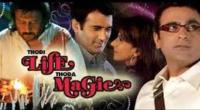
Daasi Full HD Movie Download
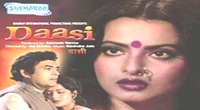
Justice Chowdary Full HD Movie Download
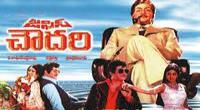
Marigold: An Adventure in India Full HD Movie Download
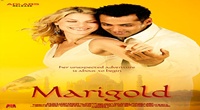
Private Secretary Full HD Movie Download
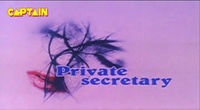
Hum Hain Kamal Ke Full HD Movie Download
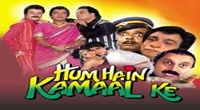
Prince (1969) Full HD Movie Download
.jpg)
Deewana Tere Naam Ka (1987) Full HD Movie Download
.jpg)
Jung (2000) Full HD Movie Download
.jpg)
Bandie Full HD Movie Download
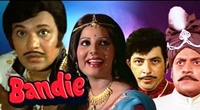
Senapathi Full HD Movie Download
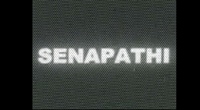
Babbi Abbai Full HD Movie Download
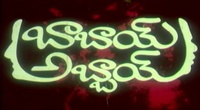
Manathil Uruthi Vendum Full HD Movie Download
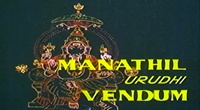
Oru Veedu Iru Vaasal Full HD Movie Download
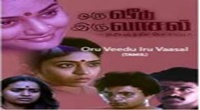
Madana Manjari Full HD Movie Download
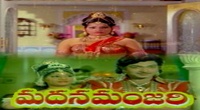
Crime File Full HD Movie Download
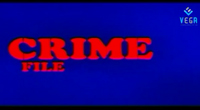
Aithe Full HD Movie Download
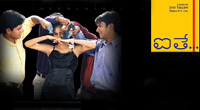
Pasupu Thadu Full HD Movie Download
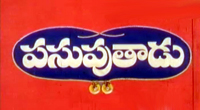
Ranabheri Full HD Movie Download
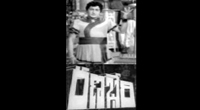
Kiladi Bullodu Full HD Movie Download
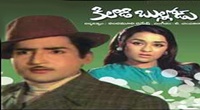
Darr - A Violent Love Story Full HD Movie Download
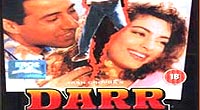
Download latest Movie from bollywood
- 1> baaghi 3
- 2> THE SKY IS PINK MOVIE FULL STORY AND REVIEW
- 3> Luka Chuppi
- 4> TO ALL THE BOYS I’VE LOVED BEFORE
- 5> Kabir Singh
- 6> Street Dancer 3D
- 7> Simmba
- 8> Gone Girl
- 9> The Girl Who Lived
- 10> Ludo
- 11> DILWALE DULHANIA LE JAYENGE
- 12> GUILTY
- 13> The Godfather
- 14> Adventures of Rusty
- 15> Sooryavanshi
- 16> Satyameva Jayate 2
- 17> Thappad
- 18> Bhool Bhulaiyaa 2
- 19> KGFChapter 2
- 20> Mardaani 2
- 21> Pinjar
- 22> Shivaji maharaj
- 23> Ek Villian 2
- 24> Hungama 2
- 25> Divergent
- 26> Mumbai Saga
- 27> The Internship
- 28> HIT (telugu)
- 29> Panga
- 30> The perfect date
- 31> 16 December
- 32> Gopala Gopala (Telugu)
- 33> Brahmastra
- 34> Gangubai Kathiawadi
- 35> Manmadhudu
- 36> Nenu local
- 37> Mahanati
- 38> Shatamanam bavathi
- 39> Lagaan
- 40> After
- 41> MOM
- 42> Shamshera
- 43> Raguvaran BTech
- 44> Khakee
- 45> The villain
- 46> OM
- 47> Mr. perfect
- 48> Bueatifull mind
- 49> Hichki
- 50> Gabbar Singh
- 51> Jogi
- 52> Before Sunrise
- 53> Before Sunset
- 54> Before Midnight
- 55> The Big Bull
- 56> Top Gun: Maverick
- 57> The Purge
- 58> The Sky is Pink
- 59> Laxmmi Bomb
- 60> Sadak 2
- 61> Sufna
- 62> Prithviraj
- 63> PK
- 64> Coolie No 1(2020)
- 65> Black Widow
- 66> Dear Zindagi
- 67> Dil Bechara
- 68> PHIR HERA PHERI
- 69> WAR
- 70> Dostana
- 71> RRR: Roudram Ranam Rudhiram
- 72> Maidan
- 73> Dabbang 3
- 74> Chhalaang
- 75> life as we know it
- 76> SherShaah
- 77> Sandeep Aur Pinky Faraar
- 78> Event Horizon
- 79> 83
- 80> Radhe: Your Most Wanted Bhai
- 81> Gunjan Saxena: The Kargil Girl
- 82> Mr India
- 83> Vivah
- 84> Anokha Bandhan
- 85> Ghost
- 86> Bhoot: Part One - The Haunted Ship
- 87> Haseen Dilruba
- 88> Laal Singh Chaddha
- 89> Qismat
- 90> Rajput
- 91> Drive
- 92> Dil Chahta Hai
- 93> Dil Ki Baazi
- 94> Dil Ka Rishta
- 95> Teesri Manzil
- 96> Dil
- 97> Love Aaj Kal
- 98> Khaali Peeli
- 99> Bunty Aur Babli 2
- 100> Atrangi Re
- 101> Gulabo Sitabo
- 102> Jodi
- 103> Suraj Pe Mangal Bhari
- 104> Deewana
- 105> Attack
- 106> Sardar Udham Singh
- 107> Toofan
- 108> THE LOVEBIRDS
- 109> Jersey
- 110> Ginny Weds Sunny
- 111> Thalaivi
- 112> Shiddat
- 113> Angels vs Zombies
- 114> Koi Mil Gya
- 115> Thank God
- 116> Bhuj: The Pride of India
- 117> Hum Aapke Hain Kaun
- 118> The Platform
- 119> Bird Box
- 120> Roohi Afzana
- 121> Torbaaz
- 122> Nikamma
- 123> World War Z
- 124> Extraction
- 125> Train to Busan
- 126> Life of Pi
- 127> SHAADI MEIN JROOR AANA
- 128> Himmat Aur Mehnat
- 129> To All The Boys: P.S. I Still Love You
- 130> Mimi
- 131> Good Newwz
- 132> Shubh Mangal Zyada Saavdhan
- 133> Raabta
- 134> Harry Potter and the Philosopher's Stone
- 135> Harry Potter and the Chamber of Secrets
- 136> Chhapaak
- 137> War of the Worlds
- 138> Harry Potter and the Prisoner of Azkaban
- 139> Harry Potter and the Goblet of Fire
- 140> MURDER MYSTERY
- 141> Shakuntala Devi
- 142> Bachchan Pandey
- 143> Jayeshbhai Jordar
- 144> Sheer Qorma
- 145> Saina
- 146> 'O' Pushpa I hate tears
- 147> Kedarnath
- 148> MS Dhoni The Untold Story
- 149> Chhichhore
- 150> Badhaai Ho
- 151> Unstoppable
- 152> Oz the Great And Powerful
- 153> The Girl on the Train
- 154> Haathi Mere Saathi 2020
- 155> The Conjuring: The Devil Made Me Do It
- 156> Gandhi Se Pehle Gandhi
- 157> The Song of Scorpions
- 158> Srimanthudu
- 159> Hello Guru Prema Kosame
- 160> Beauty and The Beast
- 161> Black Panther
- 162> Charlie and the Chocolate Factory
- 163> Bole Chudiyan
- 164> Fidaa
- 165> Duvvada Jagannadham
- 166> Bruce Lee: The Fighter
- 167> Hyper
- 168> Yaara
- 169> Red (2020)
- 170> Shivam
- 171> That Is Mahalakshmi
- 172> Nishabdham
- 173> Aashram 2020 web series
- 174> Laxmii
- 175> Mismatched
- 176> STUDENT OF THE YEAR 2
- 177> NAIL POLISH
- 178> Ramprasad Ki Tehrvi
- 179> KAAGAZ
- 180> 12 o Clock
- 181> The Power
- 182> bolo hau
- 183> Tribhanga
- 184> JAMUN
- 185> Madam Chief Minister
- 186> Maasaab
- 187> Aadhaar
- 188> Tanhaji
- 189> Bhaagi 3
- 190> Bhootnath
- 191> MALANG
- 192> Jai Mummy Di
- 193> Haathi Mere Saathi 2021
- 194> Shakeela
- 195> Unpaused
- 196> Annayya
- 197> Vamsoddharakudu
- 198> Mrugaraju
- 199> Narasimha Naidu
- 200> Sankranti
- 201> Manasu Maata Vinadhu
- 202> Anjaane
- 203> Apaharan
- 204> Bachke Rehna Re Baba
- 205> Bewafaa
- 206> Roohi
- 207> Radhe
- 208> Zindagi Khoobsoorat Hai
- 209> Yeh Mohabbat Hai
- 210> Yeh Kya Ho Raha Hai?
- 211> The Tomorrow War
- 212> DehradunDiary
- 213> Meri Shaadi Karaoo
- 214> Matruu Ki Bijlee Ka Mandola
- 215> No One Killed Jesica
- 216> Aag Ka Goola
- 217> Eight Million Dollars
- 218> Three Hundred
- 219> Cats and Dog
- 220> Decoy
- 221> Gold Rush
- 222> You Have Got Mail
- 223> Final Destination three
- 224> Tofan
- 225> Jungle
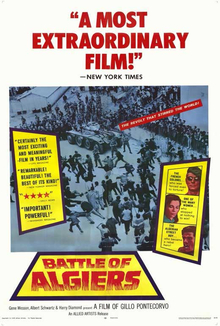 Story of movie The Battle Of Algiers Film :
Story of movie The Battle Of Algiers Film : 